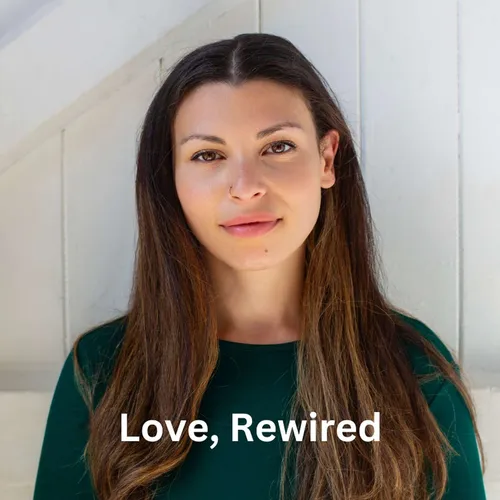Am I really in love or am I actually trauma bonded? 5 questions to ask yourself
- Author
- Sarah Alsawy-Davies
- Published
- Mon 04 Sep 2023
- Episode Link
- https://www.relationshipsuccesslab.com
Welcome to Dr Sarah: Relationship Success Lab, where high achievers, executives, and entrepreneurs explore relationship fitness, healing from relationship trauma, and creating secure, trusting, and loving partnerships. Designed for those navigating high-stakes careers and relationships, we dive into trauma-informed coaching, relationship wellbeing, and practical strategies to recover from trauma bonding and build meaningful connections. Save your marriage, start building secure relationships and optimizing your relationship wellbeing.
Get your FREE downloadable Relationship Health Quiz here: https://www.relationshipsuccesslab.com/relationship-quiz
If you would like to book in a free consultation call, please click here: https://calendly.com/healtraumabonding-info/30min
For more information, contact [email protected]
In this podcast episode, I talk about the differences between being in love and being in a trauma-bonded relationship. I highlight five key factors to help you distinguish between the two:
- Extreme Highs and Lows: In a trauma-bonded relationship, there are massive highs followed by sudden plummeting lows. These extreme fluctuations indicate a trauma bond. Healthy love, on the other hand, involves a narrower range of emotions and a more balanced middle ground.
- Mature vs. Immature Love: Immature love focuses on needing the other person for validation and completeness, while mature love centers around genuinely wanting the person because of who they are. The former leads to a trauma bond, whereas the latter signifies genuine love.
- Attachment vs. Connection: Attachment entails integrating the partner into one's own identity, causing constant anxiety and fear of abandonment. Connection involves acknowledging the partner's qualities and choosing to connect without a fear-driven attachment.
- Acceptance of Flaws: In a trauma-bonded relationship, flaws are hidden or ignored to preserve the relationship's potential. True love acknowledges flaws and accepts them as part of the
Welcome to Trauma Bonding to Secure Relationships with Dr Sarah — the podcast that helps ambitious individuals and couples heal trauma bonding and toxic relationship cycles to build secure attachments and loving healthy relationships.
Hosted by Dr Sarah, psychologist, relationship strategist, and founder of Heal Trauma Bonding and Relationship Success Lab, this show guides you through practical tools and deep insights on:
✅ Healing from trauma bonding, anxious attachment style, and codependency
✅ Building emotional resilience and secure attachment styles a
✅ Improving communication, empathy, and emotional intimacy
✅ Reclaiming your identity, boundaries, and self-worth
✅ Creating lasting relationship happiness and passion
Whether you're recovering from betrayal, navigating codependency, or simply ready to break free from the past, this podcast gives you the clarity, strength, and strategy to move forward
We hope you got massive value from this episode for your own healing and relationship progress. However if you do want to discuss your situation further, click here https://calendly.com/relationshipsuccesslab-info/discovery-call
LinkedIn: Dr Sarah (Alsawy) Davies
Instagram handle: @dr.sarahalsawy
https://www.healtraumabonding.com
https://www.relationshipsuccesslab.com
